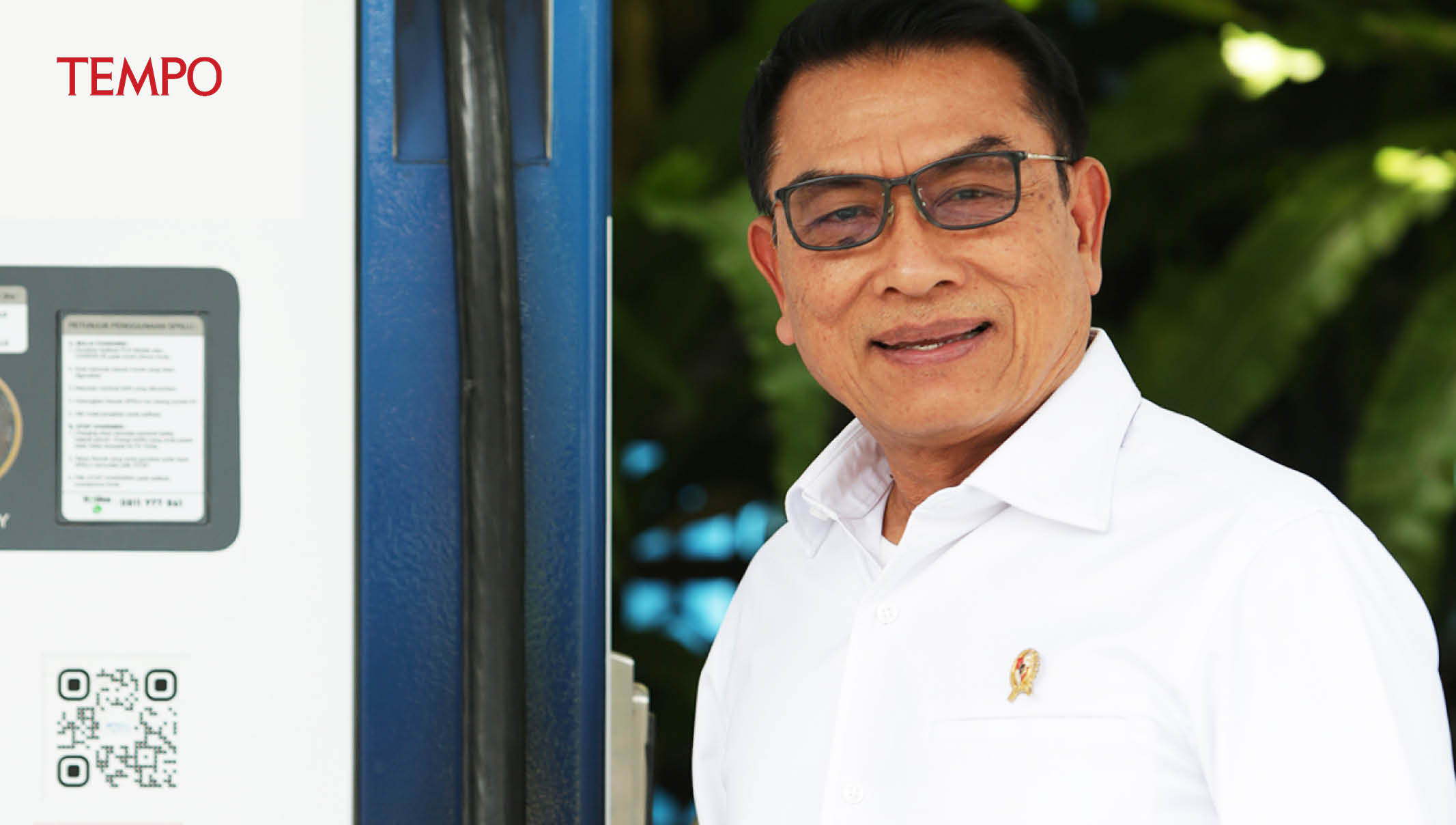Moeldoko's Inteference on Wuling Electric Vehicle Chargers
To defend Wuling Motors' business interest, the Presidential Chief of Staff has sacrificed public interest. The minister of energy should not wave a white flag.
Tempo
December 25, 2023

In intervening in the issue of chargers for electric vehicles, Presidential Chief of Staff Moeldoko is, in fact, demeaning and insulting himself. The presidential aide, who should be managing strategic matters, has been discovered to be putting pressure on the ministry of energy and mineral resources to grant the wish of Wuling Motors, a Chinese car manufacturing company, to have the Indonesian National Standard (SNI) to adopt their charging system for electric vehicles.
Moeldoko made the request because the battery charger for Wuling's GB/T electric car was not included in the Minister of Energy and Mineral Resources Regulation No. 1/2023 concerning technical provisions for electric vehicles. The regulation requires all electric vehicle devices to meet SNI. All electric vehicle manufacturers, without exception, should comply with the standard. Special treatment for one company could disadvantage consumers and harm the investment climate.
The charging system for Wuling electric vehicles indeed differs from charging systems for electric vehicles made by other manufacturer. Electric car manufacturers usually use combined charging system 1 or 2 (CCS1/CCS2). Only Wuling and electric buses made by Mobil Anak Bangsa, a company owned by Moeldoko, use GB/T chargers.
The company claims that their charging system already complies with Chinese standards. But Minister of Energy Regulation No. 1/2023 on electric infrastructure for battery-based vehicles refers to global standards.
Moeldoko then to interfere. The presidential chief of staff, who is also general chair of the Indonesian Electric Vehicle Industry Association (Periklindo), asked Minister of Energy Arifin Tasrif to accommodate Wuling. Their correspondence confirms Moeldoko’s intervention.
The presidential chief of staff should have forced Wuling to abide by the Energy ministry’s regulation. His position to defend Wuling instead renders the former Indonesian Armed Forces (TNI) vulnerable to accusations of backing the company. As head of the industry association, Moeldoko should have treated all of the association’s members fairly.
His position as presidential chief of staff, as well as Periklindo general chair, has indeed put Moeldoko in a conflict of interest. Moeldoko is the founder and owner of Mobil Anak Bangsa Indonesia, an electric vehicle manufacturer. If he wishes to be in business, he should have resigned from his government position. President Joko Widodo, interestingly enough, has allowed his subordinate to have dual positions.
Minister Arifin Tasrif has no need to fear facing Moeldoko’s intervention. As a regulator, he should be maintaining regulation transparency and fairness. Arifin should disregard Moeldoko’s correspondence and side with public interest.
Giving special priviliges—especially if a reward is involved—to one business entity would create an unhealthy relationship between the private sector and the government. This practice may allow regulators to be steered to serve corporate interests—a corrupt pattern that is detrimental to the country and consumers.
Products that do not meet SNI can create problems and inconvenience for many people. In the case of electric vehicles, Wuling consumers would have to make the effort to use a converter in order to recharge at public electric vehicle charging stations (SPKLU) provided by the state-owned electric company PLN and private companies. Besides, the safety of converters has not been determined.
SPKLU companies would also suffer if Wuling’s charging system is forced to meet SNI. If Moeldoko’s wish is granted, SPKLU would be required to provide charging stations that are compatible with Wuling chargers. Businesses would have to dole out extra investment.
Regulation that advantages just one group would be a poor signal for investors wishing to put their money in Indonesia. Meanwhile, President Jokowi has always stressed the importance of investment. One of the requirements for attracting investors is clarity of regulations, fairness, and transparency.
Moeldoko’s intervention in requesting a change in charging standards for the sake of Wuling has clearly damaged our investment climate. Moeldoko’s interference is also a manifestation of the government’s weak commitment to safeguard a transparent governance that is free of corruption, collusion and nepotism.
